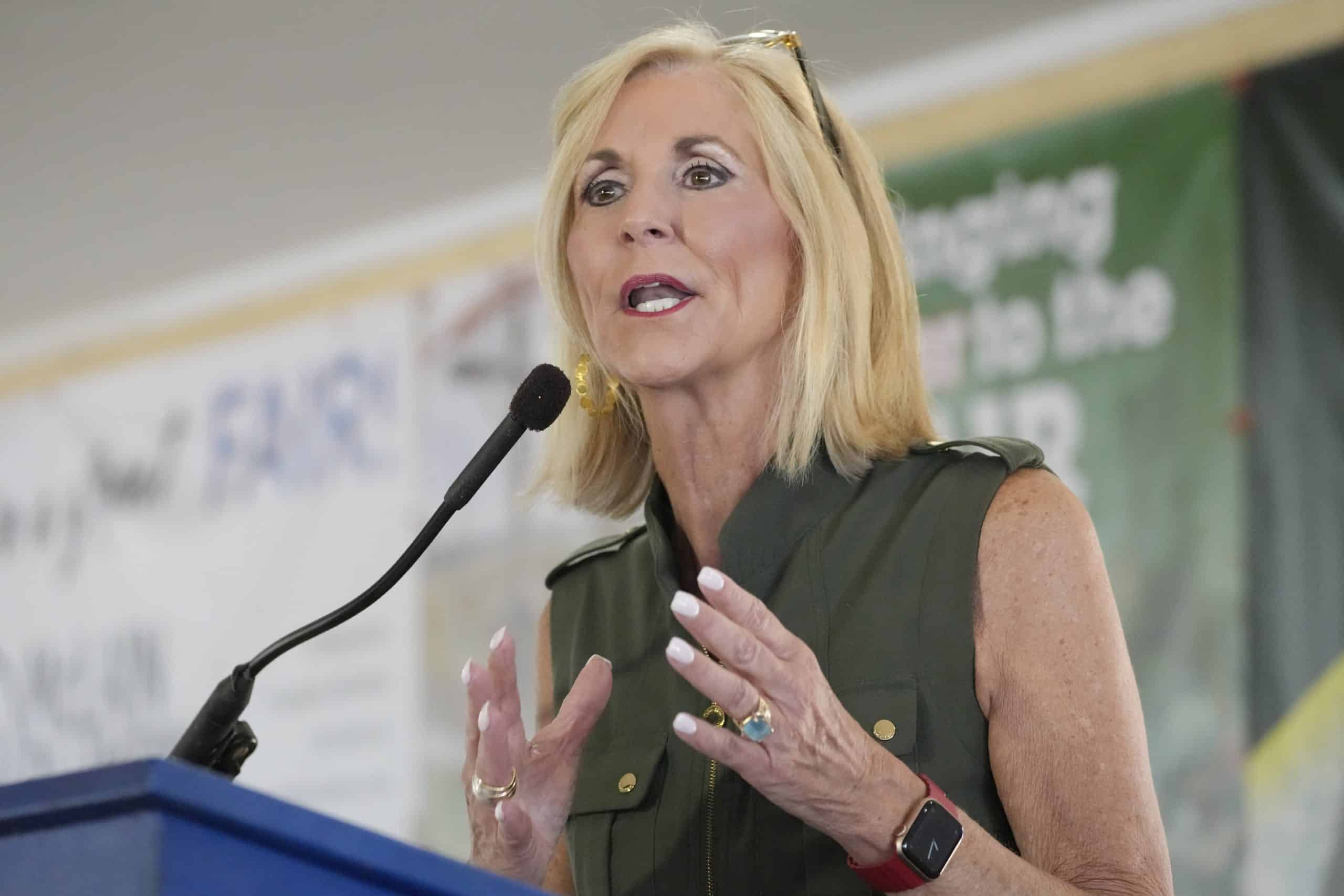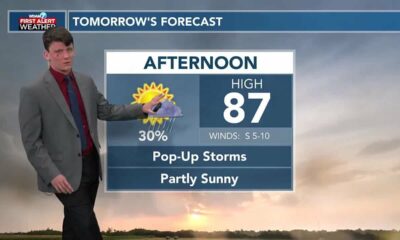Mississippi Today
No statewide official endorses Medicaid expansion at Neshoba
In 2013, then-state Rep. Andy Gipson, R-Braxton, said he opposed Mississippi expanding Medicaid because there was no guarantee the federal government would continue to pay for the program.
“Knowing that the federal government may pay for a portion of it for the next two or three years is not enough comfort for me to go ahead and say, ‘You know, let's expand this and take on the whole program,'” the Associated Press quoted Gipson as saying in 2013. “Certainly, we don't have the funds to do that.”
More than 10 years after Gipson made those comments, he still opposes Medicaid expansion, and the federal government continues to pay for the bulk of the program for the 40 states — excluding Mississippi — and D.C. that have expanded Medicaid.
Importantly, there is no serious conversation of discontinuing Medicaid expansion, which provides health insurance for primarily the working poor, individuals earning a little more than $20,000 annually.
At that same meeting in 2013, Gibson said he was for people obtaining health insurance by getting “good-paying jobs,” not by signing up for Medicaid.
Ten years later Mississippi continues to be last in the nation in terms of per capita income and among the bottom 10 states in terms of the percentage of people with employer-sponsored health insurance, according to statistics from the Kaiser Family Foundation. And any gains in the number of Mississippians with private health insurance can be credited primarily to the health insurance exchange created by the federal Affordable Care Act, not because of more well-paying jobs.
At the recently completed political speeches at the Neshoba County Fair, Gipson said he still is opposed to Medicaid expansion and is counting on those jobs to provide health care coverage for working Mississippians.
“I am against Medicaid expansion. I always have been,” said Gipson, who is now the statewide elected commissioner of agriculture and commerce. “We need people having jobs to get insurance that way.”
Gov. Tate Reeves, who is campaigning for his second term as governor, also endorsed the concept of people obtaining health insurance by having well-paying jobs instead of by expanding Medicaid.

“My view is the best way to do that is get more people with more and better high paying jobs which will allow them to have private insurance,” the governor said.
At the Neshoba Fair last week, none of the Republican statewide officials who spoke endorsed Medicaid expansion as a way to reduce the number of people without health insurance and as a way to provide a needed source of revenue for the state's struggling hospitals, many of which are in danger of closing and many of which have had staff reductions in recent weeks.
“I think it is a little late on Medicaid expansion,” said state Insurance Commissioner Mike Chaney.
“The match is not there that we used to have, and I don't think the Legislature has the appetite to do anything,” Chaney added.
READ MORE: Q&A: What is Medicaid expansion, really?
When Medicaid expansion was enacted in 2014, the federal government paid 100% of the costs for two years. The portion paid by the federal government was stair-stepped down to 90% in 2020, which is what the federal match is now. But the federal government still offers a financial incentive for those 10 states that have not opted into the program. The financial incentive to expand Medicaid would equate to more than $600 million to Mississippi over a two-year period.
Chaney said his office is working to sign up people for the health care exchange which also is part of the same Affordable Care Act that resulted in Medicaid expansion. Through the exchange, people can sign up for private insurance where the federal government will help with the costs based on the income level of those signing up. Some people who qualify for Medicaid expansion do not qualify for the health insurance exchange, leaving a coverage gap in states that have not expanded Medicaid.

Secretary of State Michael Watson, said, “I am not in favor of Medicaid expansion, but I will say this – I think there is a number of issues out there that legislative leaders have perhaps been a little bit fearful of addressing because it is such an important topic.”
Watson said he created a task force to look at possible health care solutions in Mississippi. He said hospitals in states that have expanded Medicaid are having financial difficulties like those in Mississippi. Watson said he does not believe Medicaid expansion is “the silver bullet” for Mississippi hospitals, and that he will continue to work with others on possible solutions for the health care woes facing the state.
Treasurer David McRae said, “Being at the state treasury, I don't have a position. I am waiting to see what the Legislature comes up with” and try to determine it is in the best interest of the state of Mississippi.
Attorney General Lynn Fitch said she does not support Medicaid expansion, but “If the law changes, I will certainly be supporting the law that is passed by the Legislature.”

During the 2023 session, Mississippi Today polled legislators on their position on Medicaid expansion. Only a handful said they outright opposed Medicaid expansion with a majority refusing to provide an answer or saying they wanted to see more information or had not decided their position on the issue that could bring more than a billion dollars annually in federal funds to the state.
Lt. Gov. Delbert Hosemann has said in the past he is willing to look at the issue of Medicaid expansion, though, during the past four years the Senate where he presides did not take any action on the issue.
Auditor Shad White missed the Neshoba County Fair because of a military commitment and was not available to offer a Medicaid expansion response.
All of the statewide officials are running for re-election this year.
This article first appeared on Mississippi Today and is republished here under a Creative Commons license.
Did you miss our previous article…
https://www.biloxinewsevents.com/?p=273252
Mississippi Today
On this day in 1917
May 5, 1917

Eugene Jacques Bullard became the first Black American combat pilot.
After the near lynching of his father and hearing that Great Britain lacked such racism, the 12-year-old Georgia native stowed away on a ship headed for Scotland. From there, he moved to Liverpool, England, where he handled odd jobs before becoming a boxer, traveling across Europe before he settled in Paris.
“It seems to me that the French democracy influenced the minds of both White and Black Americans there and helped us all to act like brothers as near as possible,” he said. “It convinced me, too, that God really did create all men equal, and it was easy to live that way.”
When World War I began, he was too young to fight for his adopted country, so he and other American expatriates joined the French Foreign Legion. Through a series of battles, he was wounded, and doctors believed he would never walk again.
No longer able to serve in the infantry, an American friend bet him $2,000 that he could not get into aviation. Taking on the challenge, he earned his “wings” and began fighting for the French Aéronautique Militaire.
He addressed racism with words on his plane, “All Blood Runs Red,” and he nicknamed himself, “The Black Swallow of Death.”
On his flights, he reportedly took along a Rhesus monkey named “Jimmy.” He tried to join the U.S. Air Service, only to be turned away because he was Black. He became one of France's most decorated war heroes, earning the French Legion of Honor.
After the war he bought a Paris nightclub, where Josephine Baker and Louis Armstrong performed and eventually helped French officials ferret out Nazi sympathizers. After World War II ended, he moved to Harlem, but his widespread fame never followed him back to the U.S.
In 1960, when French President Charles de Gaulle visited, he told government officials that he wanted to see his old friend, Bullard. No one in the government knew where Bullard was, and the FBI finally found him in an unexpected place — working as an elevator operator at the Rockefeller Center in New York City.
After de Gaulle's visit, he appeared on “The Today Show,” which was shot in the same building where he worked.
Upon his death from cancer in 1961, he was buried with honors in the French War Veterans' section of the Flushing Cemetery in Queens, New York.
A sculpture of Bullard can be viewed in the Smithsonian National Space and Air Museum in Washington, D.C., a statue of him can be found outside the Museum of Aviation, and an exhibit on him can be seen inside the National Museum of the U.S. Air Force, which posthumously gave him the rank of a second lieutenant. He is loosely portrayed in the 2006 film, “Flyboys.”
This article first appeared on Mississippi Today and is republished here under a Creative Commons license.
Mississippi Today
A seat at table for Democrats might have gotten Medicaid expansion across the finish line
The Mississippi Capitol is 171,000 square feet, granted a massive structure, but when it comes to communication between the two legislative chambers that occupy the building, it might as well be as big as the cosmos.
Such was the case in recent days during the intense and often combustible process that eventually led to the death of Medicaid expansion and with that the loss of the opportunity to provide health care for 200,000 working poor Mississippians with the federal government paying the bulk of the cost.
Democrats in the state House came under intense pressure and criticism for blocking a Medicaid expansion compromise reached by Republican House and Senate negotiators.
First of all, it would be disingenuous to argue that Democrats, who compose less than one-third of the membership of either chamber, blocked any proposal. Truth be known, Republicans should be able to pass anything they want without a solitary Democratic vote.
But on this particular issue, the Republican legislative leadership who finally decided that Medicaid expansion would be good for the state needed the votes of the minority party, which incidentally had been working for 10 years to pass Medicaid expansion. The reason their votes were needed is that many Republicans, despite the wishes of their leaders, still oppose Medicaid expansion.
The breakdown in the process could be attributed to the decision of the two presiding officers, House Speaker Jason White and Lt. Gov. Delbert Hosemann in the Senate, not to appoint a single Democrat to the all-important conference committee.
Conference committees are formed of three senators and three House members who work out the differences between the two chambers on a bill. Considering that Democratic votes were needed in both chambers to pass Medicaid expansion, and considering Democrats had been working on the issue for a decade while Republicans blocked it, it would have made sense that they had a seat at the table in the final negotiations process.
One Democrat from each chamber on the conference committee could not have altered the outcome of the negotiations. But the two Democrats could have provided input on what their fellow legislative Democrats would accept and vote for.
In the eyes of the Democrats, the compromise reached without their voice being heard was unworkable and would not have resulted in Medicaid expansion.
The Republican compromise said Medicaid would not be expanded until the federal government provided a waiver mandating those on Medicaid expansion were working. Similar work requirement requests by other states have been denied. Under the compromise, if the work requirement was rejected by federal officials, Medicaid expansion would not occur in Mississippi.
After voicing strong objections to the work requirement, House Minority Leader Rep. Robert Johnson, recognizing the Senate would not budge from the work requirement, offered a compromise. The Johnson compromise to the compromise was to remove a provision mandating the state apply annually with federal officials for the work requirement.
Instead, under Johnson's proposal, state Medicaid officials would be mandated to apply just once for the work requirement. If it was rejected, Medicaid expansion would not occur, but hopefully that would compel the Legislature to take up the issue of the work requirement and perhaps remove it.
“We just want the Legislature to come back and have a conversation next year if the federal government doesn't approve the work requirement. It's as simple as that,” Johnson said.
Senate leaders agreed that Johnson's proposal was a simple ask and something they might consider.
But Lt. Gov. Delbert Hosemann, who presides over the Senate, said he never heard Johnson's proposal until late in the process — too late in the process, as it turned out.
Speaker Jason White, R-West, also said he never heard the proposal, though Johnson said he repeatedly discussed it with House leaders. He certainly was relaying the information to the media during the final hectic days before Medicaid expansion died.
And perhaps if Johnson or one of his Democratic colleagues had been on the conference committee, that information would have been heard by the right legislative people and perhaps Medicaid expansion would not have died.
After all, a conference room or an office where negotiators are meeting to hammer out a compromise is much smaller than the massive state Capitol, where communications often get lost in the cosmos.
This article first appeared on Mississippi Today and is republished here under a Creative Commons license.
Mississippi Today
On this day in 1884


May 4, 1884

Crusading journalist Ida B. Wells, an African-American native of Holly Springs, Mississippi, was riding a train from Memphis to Woodstock, Tennessee, where she worked as a teacher, when a white railroad conductor ordered her to move to another car. She refused.
When the conductor grabbed her by the arm, “I fastened my teeth in the back of his hand,” she wrote.
The conductor got help from others, who dragged her off the train.
In response, she sued the railroad, saying the company forced Black Americans to ride in “separate but unequal” coaches. A local judge agreed, awarding her $500 in damages.
But the Tennessee Supreme Court reversed that ruling three years later. The decision upended her belief in the court system.
“I have firmly believed all along that the law was on our side and would, when we appealed it, give us justice,” she said. “I feel shorn of that belief and utterly discouraged, and just now, if it were possible, would gather my race in my arms and fly away with them.”
Wells knew about caring for others. At age 16, she raised her younger siblings after her parents and a brother died in a yellow fever epidemic. She became a teacher to support her family.
This article first appeared on Mississippi Today and is republished here under a Creative Commons license.
Did you miss our previous article…
https://www.biloxinewsevents.com/?p=355325
-
SuperTalk FM4 days ago
Driver’s education set to become mandatory in Mississippi as bill passes
-
SuperTalk FM6 days ago
Festival merger in Leland sets up one major event for Mississippi Delta
-
SuperTalk FM2 days ago
State approves $160M to expand Highway 7 to four lanes in Lafayette County
-
Mississippi Business5 days ago
Geartek expanding operations in Alcorn County
-
SuperTalk FM7 days ago
PERS bill set to phase in employer rate increase heads to governor’s desk
-
Mississippi News6 days ago
Two women accused of shoplifting across southeast captured in Mississippi
-
Mississippi News4 days ago
Altercation at Mississippi police department leads to officer-involved shooting
-
Mississippi Today7 days ago
Podcast: The contentious final days of the 2024 legislative session








































